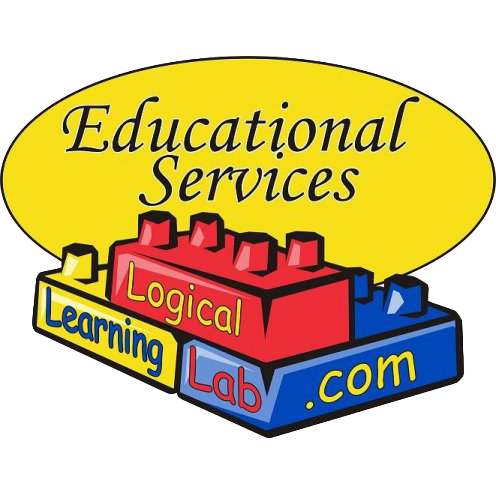Why L-Science?
L-Science focuses on Math, Science and Technology, teaching Key Principles of:
Mechanical & Structural Engineering
Pneumatics and Robotics
L-Science encourages Critical Thinking as students apply the Scientific Process to:
Understand Cause & Effect
Predict & Verify
Observe
Hypothesize
Measure
Gather Data
Solve Problems
Infer & Communicate
Enhance Vocabulary
Educational research shows that better learning occurs with Hands-On curriculum.
Concepts are studied through engaging activities with
Lego® & K’nex®
models, teaching the practice of important problem solving and communication skills, critical to success in any career.
L-Science…
provides the opportunity for pairs of students to follow strategic questioning leading them into a guided discovery process. Working together, students participate in enriching concrete activities while learning to cooperate with others, compromise, negotiate, make decisions, practice leadership, develop patience & self-confidence and see another’s viewpoint.
7 Hour Courses – Tuition $10.00/hr per person
Mechanical Principles
(Ages 8 & Up)
Introduces 1st, 2nd, & 3rd Class Levers, Fulcrum Points, Wheels and Axles, Steering, Friction, Movement, Rotation & Speed, Drivers, Followers, Idlers, Gearing Up and Gearing Down, Pulleys, Gear & Pulley Ratios, Open Belting and Cross Belting.
Exploring Mechanisms
(Ages 8 & Up)
Transition from the standard knowledge-based questioning to investigation & inquiry while building models using K’NEX® to incorporate math skills & physical science.
Engineering Connections
(Prerequisites: Mechanical Principles)
Think critically and logically to make connections between evidence and explanations. Use Physical models, Algebraic, Graphical & Numerical representations to relate Linear functions, Formulas, Averages, Graphs & Proportional reasoning.
Mind Masters Mechanisms
(Ages 8 & Up)
Build fully functional mechanisms that highlight mechanical concepts to investigate Machine Operation and the Math and Mechanical Advantage of Machine Performance.
Simple & Motorized Machines I
(Suggested prerequisite: Mechanical Principles)
Promotes the awareness of technology and deepens the understanding of Mechanical Principles adding Structures & Forces, Linkages, Flywheels, Compound Gearing, Idler Gearing, Calculation of Gear and Pulley Ratios, and Motorization.
Simple & Motorized Machines II
(Prerequisite: Simple & Motorized Machines I)
This course challenges students to add Motorization to more complex models promoting the processes of Design in the technology areas of Manufacturing, Transportation, Construction and Bio-related technology.
Engineering Machines
(Ages 8 & Up)
Explore the concept and use of End Effectors in robotics to create practical machines that can grip, grab, scoop and pull while learning about Automation and the architectural maxim “Form Follows Function”.
Design, Application & Problem Solving
(Prerequisites: Simple & Motorized Machines I and II)
Motion, Forces, Transfer of Energy, and the Principles of Simple Machines are studied through the application of key mechanical concepts. Students Identify a problem, then Design, Implement, and Evaluate a solution.
Structural Engineering
(Ages 8 & Up)
Follow a scientific approach to investigate Structural Design, Bridges, Towers, Form and Function, Forces and Loads, Materials and Joining, Strength and Stability, and Force Meters.
Bridges & Beyond
(Ages 8 & up)
Incorporate scientific, technical & design concepts while learning the History, Function, Structural Design, Geometry and Strength of 7 different bridge types.
Pneumatics: Introduction to Air Power
(Prerequisites: Simple & Motorized Machines I and II)
Explores Pneumatic Compressed Air models and develops the understanding of Pneumatic Elements and Circuits used in machinery.
Mechanical Engineering
(Prerequisites: Simple & Motorized Machines I & II; Age: 11 & up)
Develops knowledge and understanding of Physics, Kinematics, Mechanical Advantage, Manufacturing Processes, Mechanical & Pneumatic control systems.
Energy Labs
(Prerequisites: Simple & Motorized Machines I & II)
Bring the abstract concepts of energy to life through task-based investigations requiring measurement, graphing, calculation and design modification on Solar, Electrical, Wind & Water powered models. Hands-On Energy Labs introduce Generators, Capacitors, Transfer & Storage of energy, Potential & Kinetic energy, Light & Heat energy as students use the scientific process to explore Movement and Motion.
Robotics Labs
(Available upon completion of courses with prerequisites)
Integrate Math, Science and Technology to Design, Build and Program autonomous robots. Robotics builds mathematical competency and technological literacy through cross-discipline connections involving Mechanical Advantage, Design Engineering, Basic Electronics, Programming, Digital Control, Applied Algebra & Geometry, Systems, Equilibrium, Conversion of Units, Ratios & Proportions, Decimals, Fractions, Constancy, Change and Measurement.
Molecular Biology
(Intermediate-College)
Addresses Chemical Formulas, Photosynthesis, Cellular Respiration, Chromosomes, Cell Division, Mitosis, Meiosis, Genetic Traits, and the Life Cycle of a Cell.
Biochemistry
(Intermediate-College)
Explores the basic structure of Deoxyribonucleic Acid (DNA) and Messenger Ribonucleic Acid (mRNA), DNA Replication, Coding, Translation, Transcription and Mutation.
Mind Masters Math
(Ages 7-10)
Addresses 2 & 3 Dimensional shapes, Lines, Segments, Rays, Angles, Rotational symmetry, Congruence, Patterning, Rounding & Estimation, Measurement, Perimeters, and Fractions.
